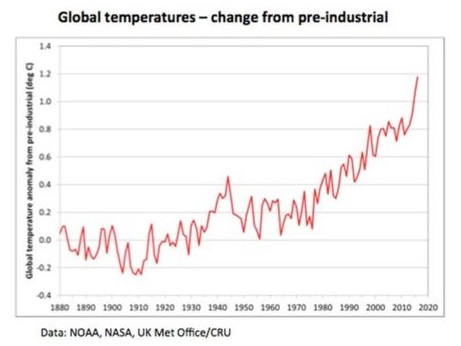Cleaner Heat Cashback Scheme – GLA
The GLA has introduced the Cleaner Heat Cashback Scheme to encourage small businesses in London to replace older gas boilers with cleaner heating systems as a step towards reducing CO2 emissions. Up to 40% of the cost of replacing a ten year old combustion heating system (coal, oil, gas or biomass) is available to SMEs.
The GLA is also keen to reduce NO2 emissions, a key component of air pollution.
Air Pollution
Air pollution affects mortality from cardiovascular and respiratory diseases, including lung cancer. A 2016 report commissioned by the Greater London Authority found that there are 9,400 premature deaths a year from exposure to particulate matter and NO2 in London alone.
Nitrogen Dioxide: NO2
All combustion processes emit oxides of nitrogen (NOx). In London, road transport and heating systems are the main sources of NOx emissions. NOx is primarily made up of two pollutants: nitric oxide (NO) and nitrogen dioxide (NO2). NO2 is of most concern due to its impact on health. However, NOx easily converts to NO2 in the air, so reducing concentrations of NOx is essential to control the levels of NO2 in the air.
Replacing an old boiler with a condensing boiler
If replacing an old gas boiler with a modern condensing boiler there are potential savings of fuel, and carbon emissions, of up to 22%.
However, the full potential saving may only be realised if the new boilers are running in condensing mode and this requires the return temperature of water to the boiler to be less than 55°C. This may not be the case unless an efficient low temperature distribution system is in place.
Replacing an old boiler with a heat pump
If replacing an old gas boiler with a ground source heat pump the saving of CO2 emissions will be 100% if green electricity is used. The NO2 saving will also be 100%. If the heat pump draws electricity from the National Grid, then the CO2 emissions saving will be 72% (if you take into account the CO2 emitted by the Grid, assume a CoP of 3.4 for the heat pump and a grid carbon factor of 205 for 2018, as projected by BEIS).
Clean Heating
If the objective is to achieve Clean Heating in order to save CO2 emissions and NO2 emissions then the clear choice is to move away from combustion and adopt heat transfer: that means using heat pumps to transfer heat from the ground your building stands on in the winter (and transferring heat from your building down to the ground in summer to keep your building cool, at a faction of the cost of providing cooling with roof mounted chillers).
Renewable Heat Incentive
While a cashback from the GLA sounds attractive for replacing a gas boiler with a new condensing boiler, there is a a larger incentive payment from Ofgem called the Renewable Heat Incentive. The RHI is payable over 20 years for those who replace heating based on combustion with heat transfer based on heat pumps in commercial properties.
See Ground Source Heating See Ground Source Cooling See Ground Source Energy

